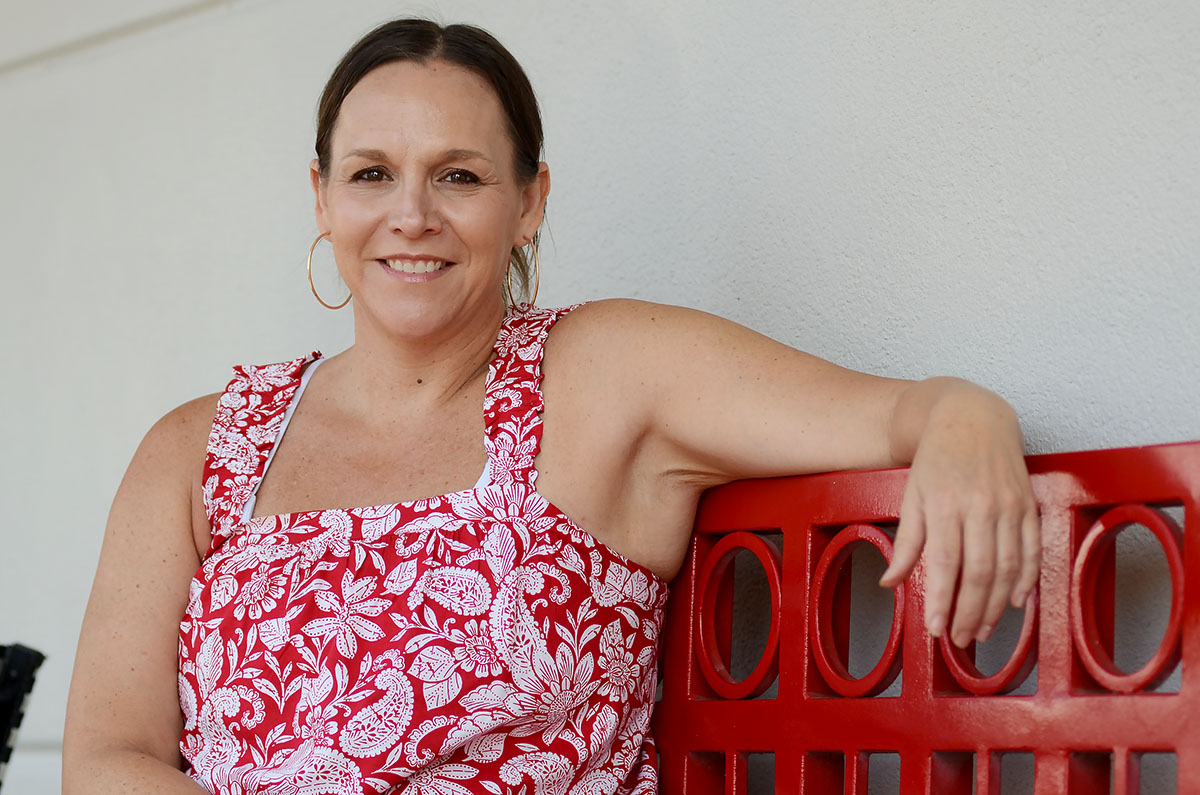Mississippi Today is profiling members of Jackson’s 2023 Change Collective.
Jamie Rasberry is the director of policy and strategic partnerships for the Mississippi Alliance of Nonprofits and Philanthropy. Rasberry attributes where she is in life to an isolated upbringing, out of which grew an insatiable curiosity about the people and places in the world around her.
“So, I grew up in Kosciusko on my family’s farm. Way out in the country like that, my exposure to other people was just people who worked for my family. I went to a small private school that doesn’t even exist anymore. I didn’t really know any other world but the one I lived in.
“Oh, you know, I’d hear things, but I didn’t really know what they meant. One was, ‘Black is beautiful. Tan is grand. But white is the color of the big boys man.’”
“Our communities were divided racially. I knew other people different from me existed, but that was it. I certainly wasn’t taught about the Civil Rights movement or the why of it in school. It wasn’t talked about at home. I just didn’t know. Basically, I grew up in a bubble.”
“My first real exposure to a lot of people of color was when I attended Delta State. One day I see these Black girls playing cards and they looked like they were having so much fun. I found out the card game was called Spades. I found out, too, that I wanted to learn how to play. I watched these young women, listened to them and kind of marveled at how they just simply accepted me. There was no me/them. It was just people my age … it was the beginning of a turning point in me.”
“I realized we’re the same. I started to ask myself questions. Why are we so divided? Thinking back on that private school I went to and what I wasn’t taught, and how those around me … how I had no one around me that could explain it. They didn’t have answers either. It all just made me curious. It made me question everything.”
“The Delta didn’t do it for me. So, I came to Jackson, went to college here. I worked with people of color, and you know, at first, I wouldn’t say that those I was around were friends exactly. I can say we were acquaintances. And I couldn’t just ask these questions about race when I wasn’t comfortable with it myself.”
“It was years before I could find people that I could trust and that I could talk to about it. And I mean, not just point me to the truth, but felt comfortable talking to me about it. I needed to understand. From my early 30s, it was 10 years of curiosity and wanting to know. I read a lot of books, watched a lot of documentaries. I learned you have to put it through your own filter and be honest with yourself. And that’s where I think a lot of people get jammed up. They can’t be honest with themselves that “
“I moved to Jackson and was involved in ministry. I lived right over there in Mid-Town. I got to know and care about my neighbors there. We’d all hang out on the front porch, play dominoes together, laugh and talk. We all wanted the same things, just a good life. I thought, you know, some people are lucky enough, well, blessed enough to experience that. It just opens up the world for you.”
“I’ve gone from a total not knowing, to curiosity and having my eyes opened to transitioning to the justice side where I can do something about the injustices out there. Because there’s still a lot of folks that just refuse to recognize the divisiveness and how that causes conflict and problems. I used to be uncomfortable saying, white privilege. Until I understood the responsibility that I had to use it to actually benefit other people.”
“I’m committed. I’m committed to be better and make a better way for my daughter. I understand this is just not about me. My daughter is biracial. It’s about her too, and the things that she’ll face in her life just because she’s biracial that I never had to face. There are already assumptions about her, and bias towards her. I have to be her advocate.”



